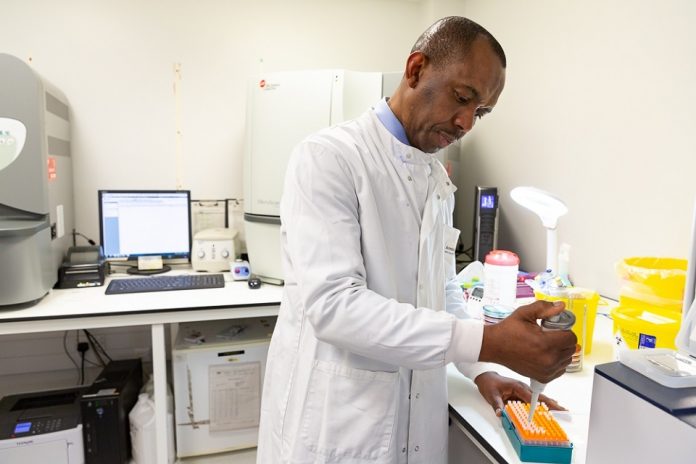- International regulators will work together to authorise promising treatments after the EU transition period
- Medicines will include cancer treatments
NHS patients could have quicker access to the next generation of cutting-edge treatments thanks to the UK teaming up with other countries to fast-track the approval process.
Now we have left the EU, the UK has complete autonomy to streamline the approval process for medicines, while maintaining the highest safety standards.
The UK will be joining 2 initiatives bringing together some of the world’s leading regulators to allow pharmaceutical companies to submit medicines to be reviewed by several countries at the same time, pooling resources and allowing patients to benefit from earlier access.
The 2 schemes are:
Project Orbis
A programme coordinated by the US Food and Drug Administration involving Canada, Australia, Switzerland, Singapore and Brazil to review and approve promising cancer treatments. The scheme has already given the green light to many life-saving treatments for patients suffering from conditions such as breast cancer, lung cancer, liver cancer, endometrial cancer, and chronic lymphocytic leukaemia.
Access consortium
A programme involving Australia, Canada, Switzerland and Singapore to help secure improved patient access to high-quality, safe and effective medicines. The consortium has previously approved 9 innovative prescription medicines, including 5 new cancer treatments.
The UK’s Medicines and Healthcare products Regulatory Agency (MHRA) will participate as an observer of both groups before the end of 2020 and will be a full participant as of 1 January 2021 after the EU transition period.
MHRA will have the authority to make the final decision to authorise medicines onto the UK market and will have complete autonomy to streamline the approval processes even further if needed outside of both schemes.
Health and Social Care Secretary Matt Hancock said:
I will stop at nothing to make sure NHS patients can access life-saving treatments as quickly as possible and now we have left the EU, we have an opportunity to speed up the time it takes to get new medicines from bench to bedside.
With the ground-breaking work on dexamethasone and other COVID-19 treatments, it is clear the UK continues to lead the way with research into the most transformative treatments.
I’m delighted the UK will be teaming up with some of the world’s best regulators to put patients first by fast-tracking cutting-edge medicines after the transition period.
The aim of both groups will be to ensure that patient safety and scientific integrity is upheld to the highest possible standards, while removing red tape and working together to get medicines onto the market quicker.
Dr June Raine, MHRA Chief Executive, said:
We are committed to working together to ensure that UK patients are among the first to benefit from promising life-saving treatments. Through our commitment to international cooperation and innovation in regulation, the MHRA continues to be at the forefront of new developments as a global hub for life sciences.
Richard Pazdur, MD, Director, FDA Oncology Center of Excellence, said:
Project Orbis stemmed from a monthly teleconference FDA held with other regulators for about 15 years, which indicated that the US often receives applications first ‒ sometimes months or even years before other countries.
We decided to address this by partnering with other countries and asking the pharmaceutical companies to submit applications to several regulators at about the same time, to provide early entry of these applications into their regulatory systems. To date, our partners include Australia, Canada, Singapore, Switzerland, and Brazil. We are pleased to welcome the UK’s MHRA to this collaborative program.
Background information
Some of the key benefits to sharing the evaluation of medicines across the group are:
- there is reduced duplication of effort leading to more efficient and effective regulatory review
- work-sharing is promoting distribution of work to facilitate regulatory decisions
- agencies are learning from each other, adopting a flexible approach to application management and using the best parts of each evaluation pathway
- sharing the evaluation of new drug applications is cost-effective for the regulators
- each agency is able to benefit from the other partners’ knowledge and expertise and continually improve its regulatory practices, and there is a sharing of global regulatory intelligence
- post-market activities are helping to identify emerging safety concerns
- there is greater access to additional regulatory experts, opportunities for technical discussions and more informed decision-making
- partner agencies have gained a greater understanding of areas where their regulatory frameworks diverge, which has increased the potential for better harmonisation in the future
- there are clear efficiencies in the development of best practice, the sharing of guidance and procedural documents, and international alignment
MHRA
The independent Medicines and Healthcare products Regulatory Agency is responsible for regulating all medicines and medical devices in the UK by ensuring they work and are acceptably safe. Their work is underpinned by robust and fact-based judgement to ensure that the benefits justify any risks.
The MHRA also includes the National Institute for Biological Standards and Control (NIBSC) and the Clinical Practice Research Datalink (CPRD). MHRA is an executive agency of the Department of Health and Social Care.







